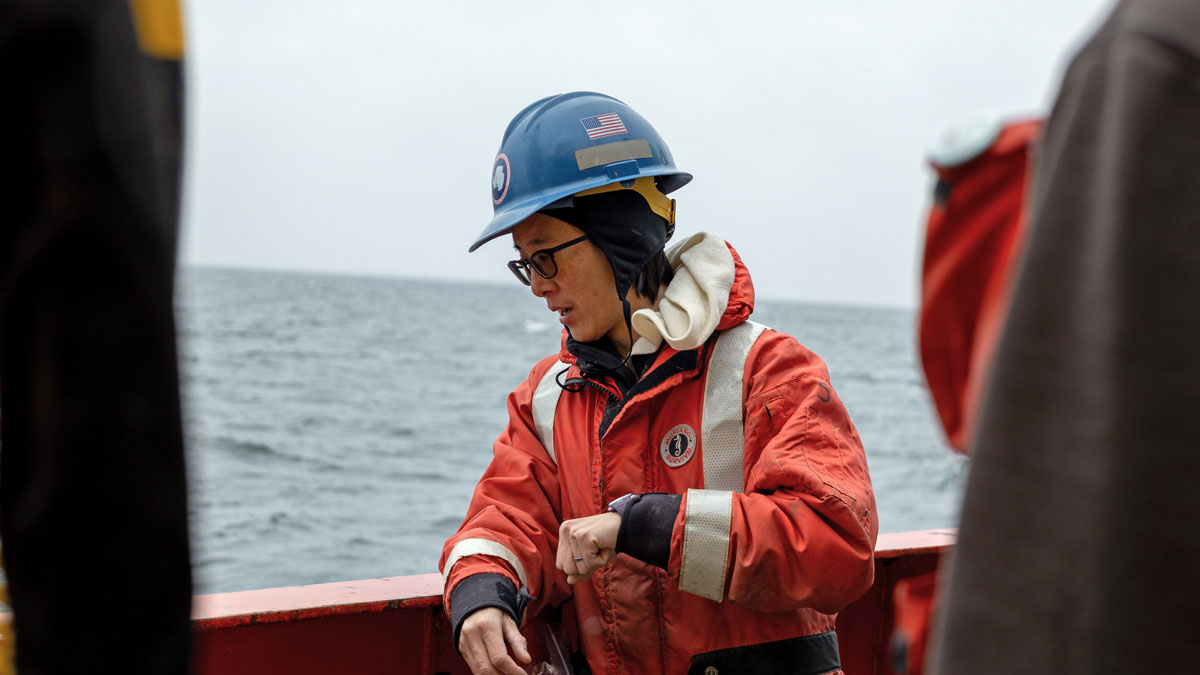Phoebe Lam’s science career started when she looked up at the stars. Her father, a theoretical physicist, explained the movements of Earth, the Moon, and planets, and Lam developed an appreciation for the natural world.
Today Lam works below the stars as a marine geochemist at the University of California, Santa Cruz, studying the role particles play in the cycling of carbon, iron, and other elements in the ocean.
Early on, it was hard for Lam to fit her love for nature into the confines of a scientific discipline. As an undergraduate at the Massachusetts Institute of Technology (MIT), she enjoyed all her classes—calculus, physics, chemistry, biology—almost equally.
“I realized I like the messiness of the real world.”
Lam saw her peers joining research labs and did the same. She dove into oceanographic work with scientists at MIT and the Woods Hole Oceanographic Institution. An adviser predicted that Lam would be a “great generalist someday,” Lam said. “I wasn’t super focused—I was trying little things there, little things here. I think that still characterizes my brain.”
Drawn to work that integrated different disciplines, she joined an oceanography lab at Princeton University to study the trace metal requirements of phytoplankton.But dealing only with tightly controlled variables felt limiting. “I realized I like the messiness of the real world,” she said.
Frustrated, Lam joined the world of environmental policy—a “rebound relationship,” she said. While enrolled in a policy-focused master’s program, she took a class on carbon cycles, and found her way back to oceanography, eventually earning a Ph.D. from the University of California, Berkeley.
The twists and turns of Lam’s academic journey “made me understand…that there are a lot of ways to do science,” she said. She counsels prospective undergraduate and graduate students to think about how they might feel satisfied by their research.
For Lam, that satisfaction comes from putting together the complex puzzle of the ocean’s chemistry—from knowing there are so many different questions she can ask of the ocean.
—Grace van Deelen (@gvd.bsky.social), Staff Writer
This profile is part of a special series in our August 2025 issue on science careers.


